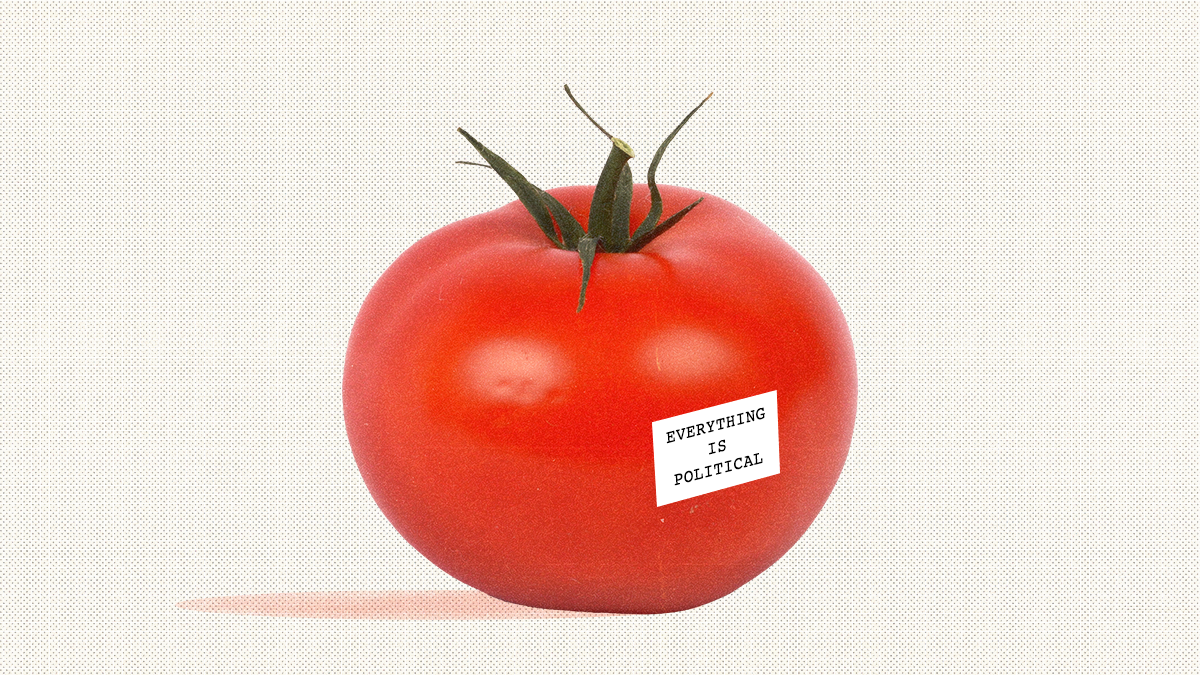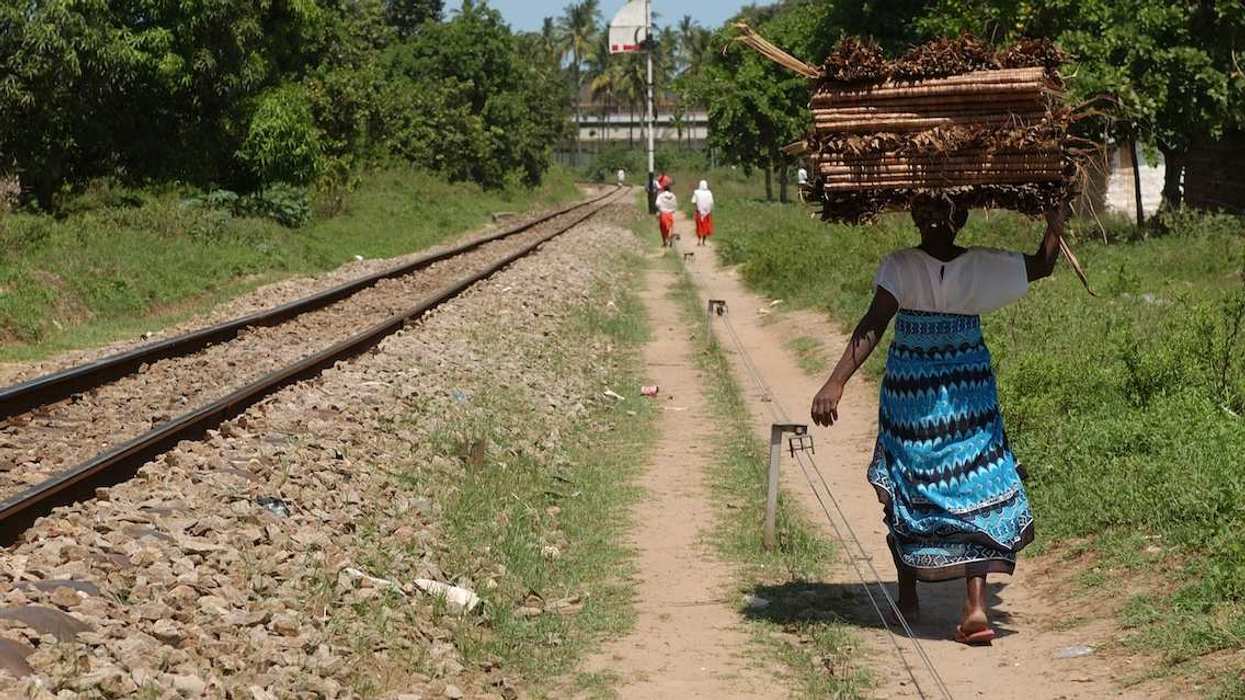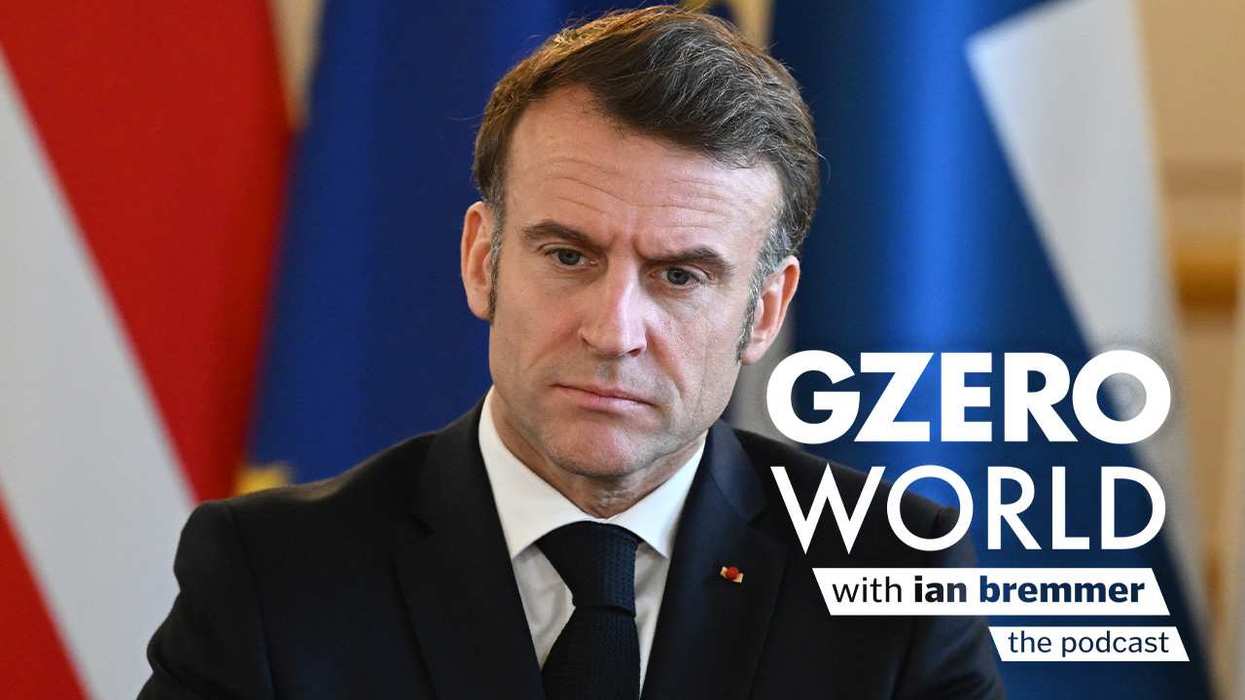If you’re reading this column, chances are you’ll agree that at some level everything is political, right?
All around us, the things we touch, eat, buy, and wear, the people we meet, the ways we communicate – there’s a little politics in all of it. There’s the trade policy that determines where your shirt comes from. There’s the immigration policy that shapes who your kids will befriend in kindergarten or where they’ll work when they grow up. There are the decisions about war and peace that can shape life for you or for family members thousands of miles away.
So from time to time, I want to take a look around the world closer at hand, spotting the big political stories in the small objects around us. Today we’re gonna do three quickies: a sofa, a tomato, and a shoe.
Let’s go.
Your sofa: Where’s it from? If you’re in the US, chances are that for most of the past 30 years, it’s been made in China, the major exporter of furniture to North America. But if you bought it over the past year? It just might be from somewhere closer to home.
That’s because just this week México officially passed China as the US’ largest annual trade partner, taking the top spot for the first time.
That’s a big deal. China has ruled the roost for most of the past 30 years on the strength of its business-minded dictatorship and its vast, relatively cheap labor force. But in recent years, two things started to change all that. First, Donald Trump uncorked a banger of a trade war against Beijing. Then, pandemic-related lockdowns shut much of China’s economy and choked off supply chains around the world.
Companies got spooked. Investors who once prized low costs over everything began to prioritize safer shores. They began scrambling to find places not named "China" to make things to sell to the vast American market: Vietnam, Thailand, and Cambodia. They all boomed.
But México was the big winner. After all, it’s right next to the world’s largest consumer market and has a free trade agreement with Uncle Sam (renegotiated by Trump himself, no less.)
Nowadays, the industry-heavy states of northern México are practically choking on incoming investment. The catch? A lot of it is coming from … China, as companies like, say, Man Wah – one of the world’s leading manufacturers of sofas – pile into Mexico to keep a foot in the American market.
So while you sprawl out on that sofa, ponder this: the 1990s and 2000s world of peak globalization, when companies scoured the planet for the lowest cost production, is over. We now live in a world where proximity and security matter more than cost. Get close to someone on that couch!
Tomato: Speaking of México, consider one of that country’s greatest gifts to the world: the tomato.
The once-feared fruit* didn’t make it widely to Europe until about 250 years ago – no penne al pomodoro or pan con tomate until then – but at the moment it’s a little political grenade on the continent: France and Spain have gotten into it over tomatoes in recent days.
First France said the Spanish ones were “false organic” frauds. Spain shot back that France’s were “inedible.” French farmers roughed up a Spanish tomato truck.
The issue? Paris says Spanish tomato farmers are shirking the EU’s strict rules on pesticides to flood France with cheaper produce. Spain says its own campesinos are fully following the rules and points to massive imports of cheaper Moroccan tomatoes to France as the culprit.
This is more than just a tú dices “tomate,” je dis “tomate” dispute. It echoes the larger wave of farmer protests that is roiling Europe. Across the EU, farmers are raising pitchforks against Brussels, mad about climate-conscious fuel subsidy cuts that are hurting their bottom lines at a time when their costs (for fuel and fertilizer) are already up because of the Ukraine war. Meanwhile, they’re also getting squeezed by cheaper competition from abroad.
Critics of the protests point out that European agriculture has been protected by massive subsidies for decades, and that it’s a shrinking sector of small farms and old farmers that has resisted modernization.
That may be, but no sane politician in Europe wants to be seen ignoring granddad the farmer, so governments across the continent have been rolling back subsidy cuts and icing new trade deals.
Lastly, look at your shoe. And while you’re looking at it, consider the Houthis, the Iran-backed rebel group that controls Yemen.
What could these two things possibly have to do with each other?
The answer is floating in the Red Sea, where, as you probably have heard, the Houthis have been raining drones and missiles down on commercial ships as an act of solidarity with the Palestinians under Israeli assault in Gaza. As a result, shipping companies that move goods through the Red Sea and onto the Suez Canal are rerouting around the Horn of Africa. What’s this got to do with shoes?
As my colleague John found earlier this week, fully HALF of all shoes that go to Europe travel through the Red Sea. And about 40% of all clothing. So if you see a European friend walking around with two left shoes or one bare foot – you know who to blame.
*Yes, the tomato is a fruit. Don’t shoot the messenger. If you can’t handle that, don’t let me be the one to tell you that a strawberry isn’t a berry, but an eggplant is.



















